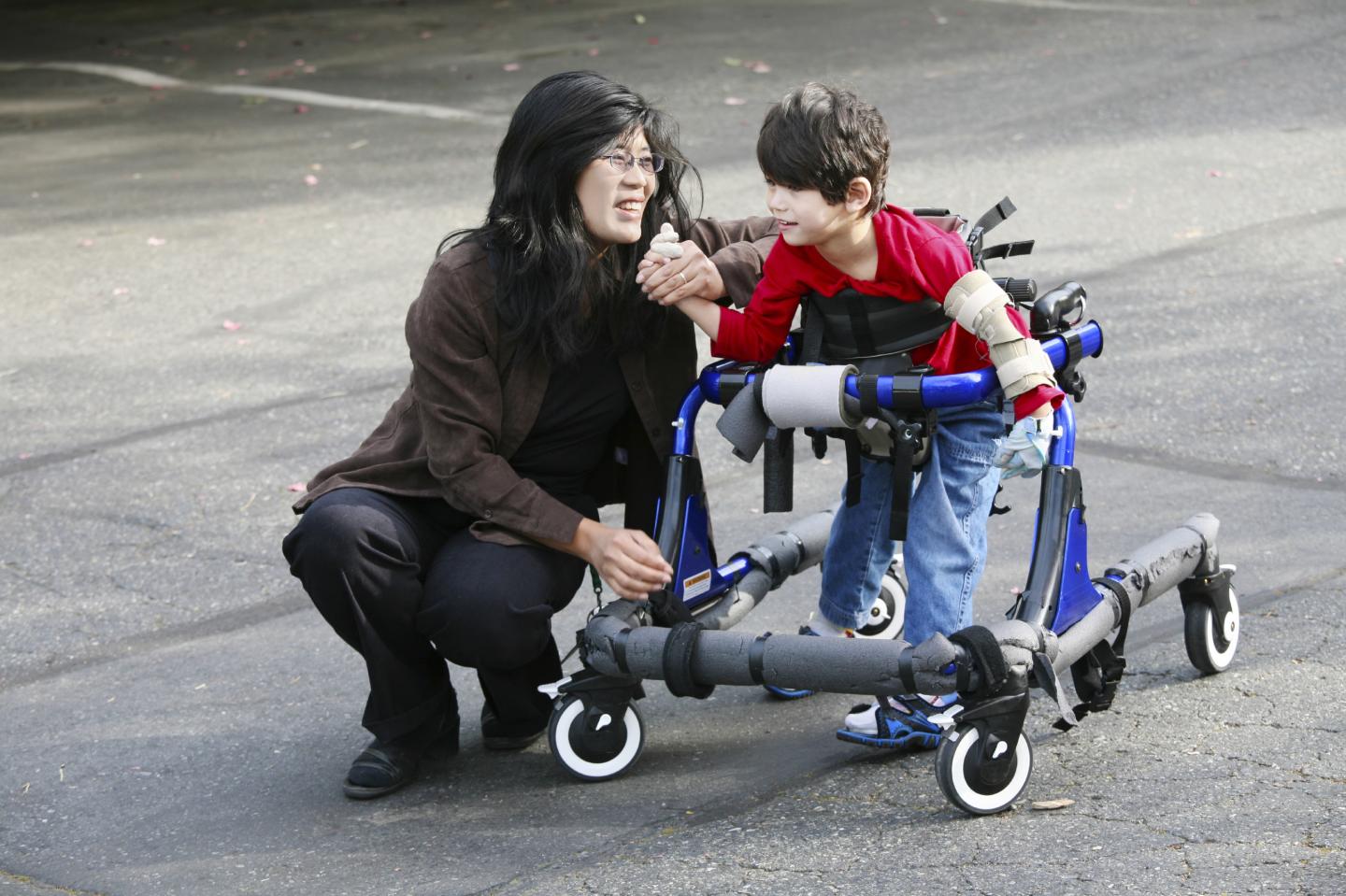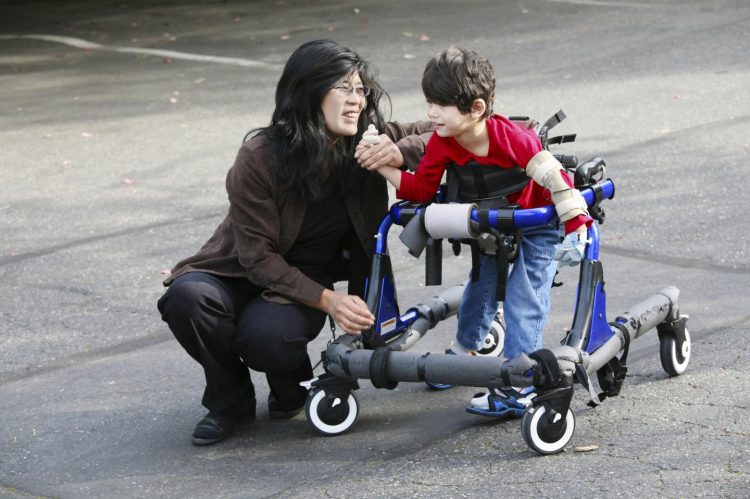A new study has revealed the most effective medications to reduce drooling in young people with a developmental disability

Credit: Murdoch Children’s Research Institute
A new study has revealed the most effective medications to reduce drooling in young people with a developmental disability, which can affect their socialisation, relationships and community life.
The research, led by the Murdoch Children’s Research Institute (MCRI), found anticholinergic drugs benzhexol hydrochloride, glycopyrrolate, and scopolamine patches significantly reduced drooling.
But any improvement resulted in adverse side effects such as behavioural changes (restlessness, irritability, hyperactivity), dehydration, constipation, skin rash, fever and blurred vision.
MCRI’s Dr Sue Reid says the study found the best treatment for drooling was glycopyrrolate.
“Glycopyrrolate produced the greatest improvement in drooling with the fewest side-effects and discontinuations of treatment,” she says.
“For those with severe motor impairment, often already on multiple medications, choosing a medication to help control drooling with fewer side-effects is imperative.
“The research aimed to provide clinicians with important information around choosing the best medication, including success rates and the impact of side-effects. It also looked at treatment compliance in a ‘real world’ clinical setting.”
The study found that after one week on glycopyrrolate, 73 per cent of carers rated the young person’s drooling as improved.
But by the end of the study, 63 per cent of participants had ceased taking glycopyrrolate and 77 per cent reported at least one side effect.
Published in the latest Developmental Medicine and Child Neurology journal, the research involved 110 participants from The Royal Children’s Hospital Saliva Control Clinic.
Dr Reid says medication side-effects were common in the study and often led to treatment cessation.
“Almost all children attending the clinic have developmental disability, particularly cerebral palsy, intellectual disability and autism spectrum disorders,” she says.
“They provided data for 52 weeks or until drug discontinuation on compliance, drooling, adverse effects, and reasons for cessation.”
MCRI lead researcher Professor Dinah Reddihough says for many young people with developmental disability, excessive drooling impacts socialisation, relationships, and integration into school and community life.
“Loss of self-esteem and high personal care needs are often ongoing problems for the young person and their carers,” she says. “Secretions may also damage books, clothing, and computer equipment and skin may become excoriated.”
Prof Reddihough says despite drooling being a common problem for those with a disability, including about 22-40 per cent of young people with cerebral palsy, no current available treatment options are totally satisfactory.
“Behavioural and therapy approaches are not always successful,” she says. “Medication may have undesirable side-effects. Intra-glandular injection of botulinum toxin only provides temporary improvement, and surgery may be traumatic and associated with a risk of long-term dental problems unless dental surveillance is optimal.
“Anticholinergic medication is one of the most frequently used treatments for drooling. These agents block the receptors that stimulate saliva production. But unwanted side-effects are often reported because their action is not confined to the salivary glands.”
###
Publication: Susan M Reid, Christine Westbury, Angela T Guzys and Dinah S Reddihough. ‘Anticholinergic medications for reducing drooling in children with developmental disability,’ Developmental Medicine and Child Neurology. HTML linked DOI: doi.org/10.1111/dmcn.14350
Media Contact
Bridie Byrne
[email protected]
Original Source
https:/
Related Journal Article
http://dx.





